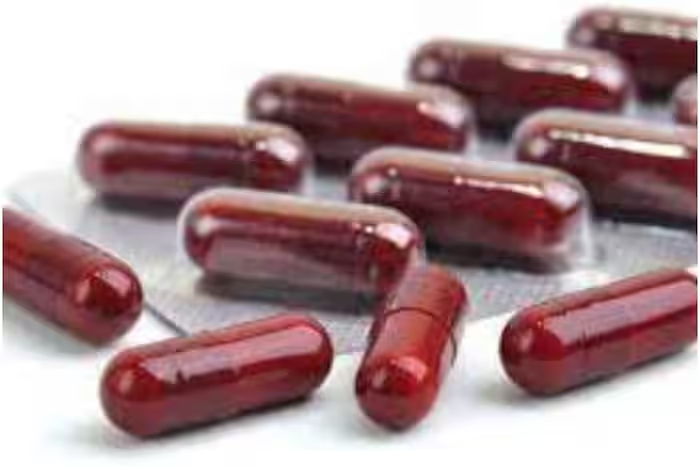Recognizing The Latest Development in Cancer Therapy: A Resveratrol and Copper Tablet
New Delhi: With over 14.1 lakh new instances of cancer and over 9.1 lakh cancer-related fatalities in India in 2022, the country faced a dilemma. In India, there is a 10.6% chance of getting cancer before the age of 75, and a 7.2% chance of dying from the disease. Taking into account India’s population, these figures are strikingly high. Chemotherapy, which employs potent chemicals to target cancer cells, immunotherapy, which strengthens your body’s defenses against the disease, radiation therapy, which utilizes high-energy rays to destroy cancer cells, and surgery to remove afflicted tissue are the current methods of treating cancer.

Even though these therapies are often successful in controlling cancer, they have drawbacks of their own, chief among them being the potential harm they may cause to patients. The psychological and physical toll that these side effects take has a major negative influence on cancer patients’ quality of life.
Recently, a unique tablet that combines copper with the naturally occurring chemical resveratrol—found in grapes—may provide a game-changing remedy. Scientists are optimistic about this unique combination since it intends to lessen the side effects of existing medications while also promising more accurate and effective cancer treatments for less than Rs. 100. This novel combination may open a new chapter in oncology by specifically targeting the chromatin found in cancer cells, providing hope to millions of cancer patients throughout the globe.
In the middle of the commotion, prominent oncologist and Decode Age Scientific Advisor Dr. Vishal Rao, together with co-founder and chief scientific officer Darshit Patel, provide a fair analysis. Their editorial, which is being reviewed by a prominent journal, urges thoughtful consideration of this intriguing but challenging development.
While there is undeniable enthusiasm in the media around this hopeful finding, Dr. Vishal Rao argues that we should approach it with a critical eye and an open mind. This innovation calls for further study and open communication in order to effectively traverse this pivotal time in the history of cancer treatment.
In order to navigate the complexities of aging and bring forth unmatched innovation in longevity research and innovation, Decode Age, a biotech startup that is leading the way in longevity research, recently established a scientific advisory board (SAB) comprising eminent figures from a spectrum of disciplines including clinical research, academia, medicine, bioinformatics, and biotechnology. The firm has formed a new scientific advisory board as part of its aim to become a worldwide leader in the area of longevity studies.
Dr. (Prof.) U S Vishal Rao, MS, FRCS (Glasgow), FACS (USA), and Fellow of the Royal Society of Medicine, is a pioneer in surgical cancer and a shining example of both ingenuity and altruism. He is a founding member of the advisory. His commitment to enhancing healthcare results goes beyond the operating room and laboratory; as a consultant to the Principal Scientific Advisor of the Government of India and the Vision Group for Biotechnology of the Government of Karnataka, he actively participates in defining policy and research goals. In order to better understand the relationships between cancer, the immune system, and health policy, Dr. Vishal Rao’s extensive expertise in oncology, immunology, and the function of the microbiome is crucial. This aligns with Decode Age’s objective to extend health spans through creative research.
The co-founder and chief scientific officer of Decode Age, Mr. Darshit Patel, has been investigating the connection between resveratrol and wellbeing and lifespan. Mr. Darshit Patel provides insight into the latest advancement, stating, “Resveratrol has been revered since the 1970s for its antioxidant and anti-inflammatory properties, as well as its potential role in supporting the immune system and treating cancer.” The addition of copper, which is renowned for its oxidative qualities, creates a complex dynamic. This counterintuitive pairing emphasizes the delicate balance needed in cancer treatment plans.
Going a step further, Dr. Vishal Rao, Scientific Advisor, Decode Age, says, “The two goals of cancer treatment are killing cancer cells and boosting the immune system’s alertness. Resveratrol and copper together provide a unique way to target cell-free chromatin particles (cfChPs), which are known to carry genes that promote cancer. Clinical experiments have shown the effectiveness of the resveratrol-copper combination in reducing cancer hallmarks. The results indicate that the major initiator of these hallmarks is cell-free chromatin from the tumor microenvironment. The combination of copper and resveratrol boosts oxidative stress and intensifies the anticancer effects. It is important to remember that the copper-to-resveratrol ratio used in these studies was around 1:1000, suggesting that copper was not the main component but rather an accessory that enhanced the effects of resveratrol. Together, the two seek to target the cancer cells directly, recognize the DNA produced by tumor cells, and stimulate the immune system. This novel strategy attempts to strengthen the immune system’s capacity to recognize and destroy cancerous cells, in addition to directly eliminating cancer cells.
Dr. Rao is concerned about the public’s haste to use over-the-counter copper supplements for self-medication, however, saying this is a trend that has to be watched carefully. Mr. Darshit Patel continues, “The main source of worry is copper, even though resveratrol has been well researched as a nutraceutical and anti-aging supplement, showing tolerance in people with low adverse effects. Copper has the ability to cause oxidative stress at high quantities, which may increase the risk of cancer. Therefore, it’s important to be aware of the risks associated with possible self-medication. Our discussion emphasizes how important it is to understand the scientific foundations and complexities of cancer research, promoting the use of adjuncts like copper or resveratrol only after careful consideration.






